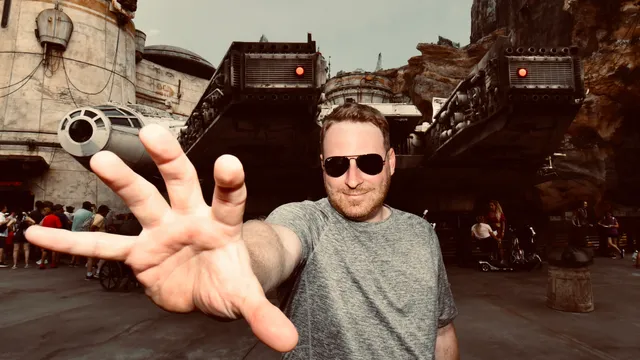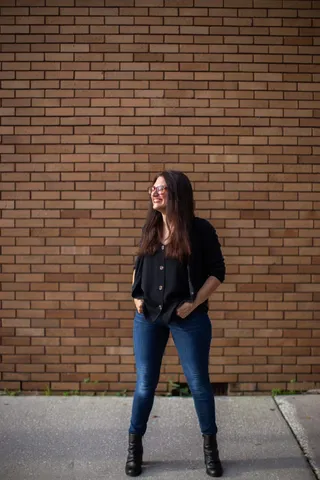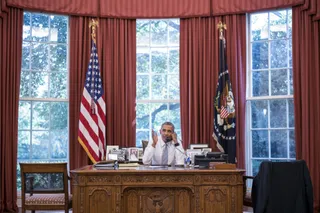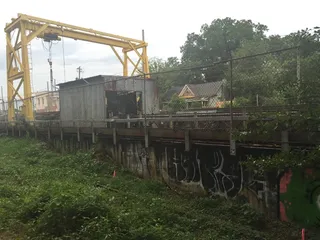Rising From the Rubble of Institutions
What happens when everything we know falls apart? We redefine ourselves and seek a new path through life.

In 2005, I began working in local church ministry. I was an assistant in a youth ministry at a large, downtown church with a 150+ year history that also happened to be the church where I grew up.
For over 15 years, I made a career out of building community inside the church. I began working with teenagers, then their families, and eventually, people of all ages. As the Minister to Children, Youth, and Families, my mission was to help people explore their faith — not spoon-feed them what I or the “church” believed. I loved my time there and am proud of what our team of volunteers built. I even got married and built a life. I was happy, secure, and felt connected to something bigger than myself.
As of this writing, however, I'm on the other side of a separation which sadly led to divorce, and I haven't worked for a church in three years (or regularly attended one, either). When your former life crumbles around you, it's natural to question your stability and faith. Difficult times force most of us to redefine ourselves, our lives, and the religious institutions we might have once held dear.
This article is about how I'm reinventing myself and building something new. But, first, some backstory.
Leaving the Church
Toward the end of my role in local church ministry, I spent a few years learning about and rallying people behind intergenerational ministry. My thesis was that the popular trend among churches to segregate children and youth from adults was primarily due to a decades-old practice of focusing on adults and babysitting children.
Instead, I believed that faith happens in intergenerational settings — adults can learn just as much from children as it is the other way around. I wrote a curriculum that followed this model, led groups, and taught volunteers to focus on including multiple generations in all activities.
One of my greatest joys working in church ministry was leading a group of high school students and nonagenarians. We met every week for a school year and talked about life. The conversations and friendships forged were beautiful. The faith that was shared was unparalleled. It was something I will forever be extremely proud of.
A few years before I chose to step down, we had a pastoral leadership change. Let's just say that we didn't see eye to eye on my intergenerational work. Having years of work questioned and largely brushed aside was insulting and not a regression I was willing to make. Instead, I realized it was time to seek a new challenge and, for the first time in my career, see what life working outside the church was like.
Deciding to leave was exciting, not nauseating. I genuinely was looking forward to what lay on the other side. Then, well, it didn't really play out that way.
The World Changed
I will never forget the day I told the church staff I was resigning, and it's not because of their completely shocked reactions. It was the afternoon of March 11, 2020. That night, the NBA walked off the court in fear of a new highly contagious airborne virus that came to be known as COVID-19. Life had literally changed not just for me but for the entire world.
When I made my announcement, I had planned to leave at the end of the school year. My work was largely based on the school calendar, so that was a natural turning point. I didn't plan on spending those last few months helping the church transition to online gatherings, nor seeing pretty much any of the people I had spent 15 years working with in person ever again. But that's where my focus was needed.
Online church just wasn't the same. People I spent years working with and getting to know felt distant. The rituals and traditions that felt so alive now were cold and lifeless. For someone who practically lives online, I know that building community is possible in a digital space — the church just wasn't capable of making that leap.
After my time working for the church ended, I only attended a few services. Everything felt so foreign, so forced. I very much got the impression that the church was attempting to maintain appearances that "nothing had changed" despite quite literally everything having changed.
I stopped attending, and aside from a few special services led by pastor friends, I haven't gone back.
Broken Institutions
Through my time working in the church, I witnessed denominations split apart. I saw people advocate that taking rights away from others was the Christian thing to do. I saw firsthand the hurt caused on behalf of the church and its "well-meaning" leadership. I saw the institution of the church be given precedence over the people the church supposedly served.
I will never understand how anyone can take Jesus' words to "love your neighbor" and add in a qualifier. Yet, I witnessed it every day. And not just by the global church but by people I directly worked with. If you ever want proof that the church is led by humans, attend a church board meeting when there are budgets on the line. That whole notion of loving others goes right out the window as people fight for their slice of the pie. It's not pretty.
Today, I read stories about how church attendance is down and how the number of people claiming no religious affiliation is up. Frankly, I'm not surprised. Some churches do amazing and wonderful things, genuinely caring for their congregations and communities. But, the institution feels very much focused on keeping itself relevant to the detriment of its people.
Broken Relationships
Despite being where broken people supposedly come together to support each other, I was taught that church leaders held it together. Church leaders portrayed strength so they could guide others through difficult times. I honestly don't know if this was a spoken rule or something I took as the norm, but it fundamentally destroyed my mental health.
As a result, I rarely shared what was truly going on in my life — not with the people I worked with, not through my writing, and not with the people I cared most about. Through therapy, I realized how unhealthy this behavior was, but in the middle of it all, it was the only method I knew.
A year or two ago, my 12-year marriage unraveled. Since I had already cut myself off from all the previous church-fueled relationships, I went further inward. The world became very small and very dark.
However, over the last six months, I've realized that life is what you make it. I've been reminded time and time again that the only actions we can control are our own. So, I regained control of my life, and instead of looking at what I had lost, I started focusing on what came next.
The Wayseeker
As I looked for comfort over the last year, I started listening to a lot of Star Wars audiobooks. Like, all of the audiobooks. The High Republic series of books takes place about 200 or so years before the events of A New Hope. It's the largest expansion of the Star Wars universe in the Disney era.
One of the concepts introduced in these books is that of the Jedi Wayseeker. Essentially, these are Jedi who believe in the power of the Force, who understand what the Jedi Order stands for, but don't necessarily feel beholden to the institution. In some regards, they question the rules or think there might be other options to live within the Force outside the Jedi Order.1
In the books, Wayseekers are questioned or looked at with curiosity by other Jedi. In some respects, they are outcasts who don't mindlessly accept the beliefs handed to them. They are connected to the larger Force but want to understand what that means for them on a deeply personal level.
The idea of being a Wayseeker resonates deep within my soul. I don't know what is next in my life, but I want to explore every possible opportunity and outcome. I want to question and push back against the rules and norms of institutions. I want to find new and meaningful connections wherever they exist.
As I write this, I'm lying on a mattress in an empty house. Tomorrow, my home will begin a massive renovation that will cause me to move out for a few weeks. Packing and moving everything has been cathartic, to say the least. But, as my world has gotten as small as possible — literally a suitcase of clothes, my computer, and a mattress, I'm ready for what comes next.
Wayseeking means being open to possibilities and not beholden to expectations or institutions. Wayseeking means finding my path in the world, wherever it leads. I'm excited to see where everything leads, what paths I chart, and what new experiences come my way.
I'm Justin Cox, and I'm a Wayseeker.
- You could say that Ahsoka Tano would have been a Jedi Wayseeker if the concept existed in canon. Instead, she left the Jedi Order when she realized the institution was broken. ↩︎























